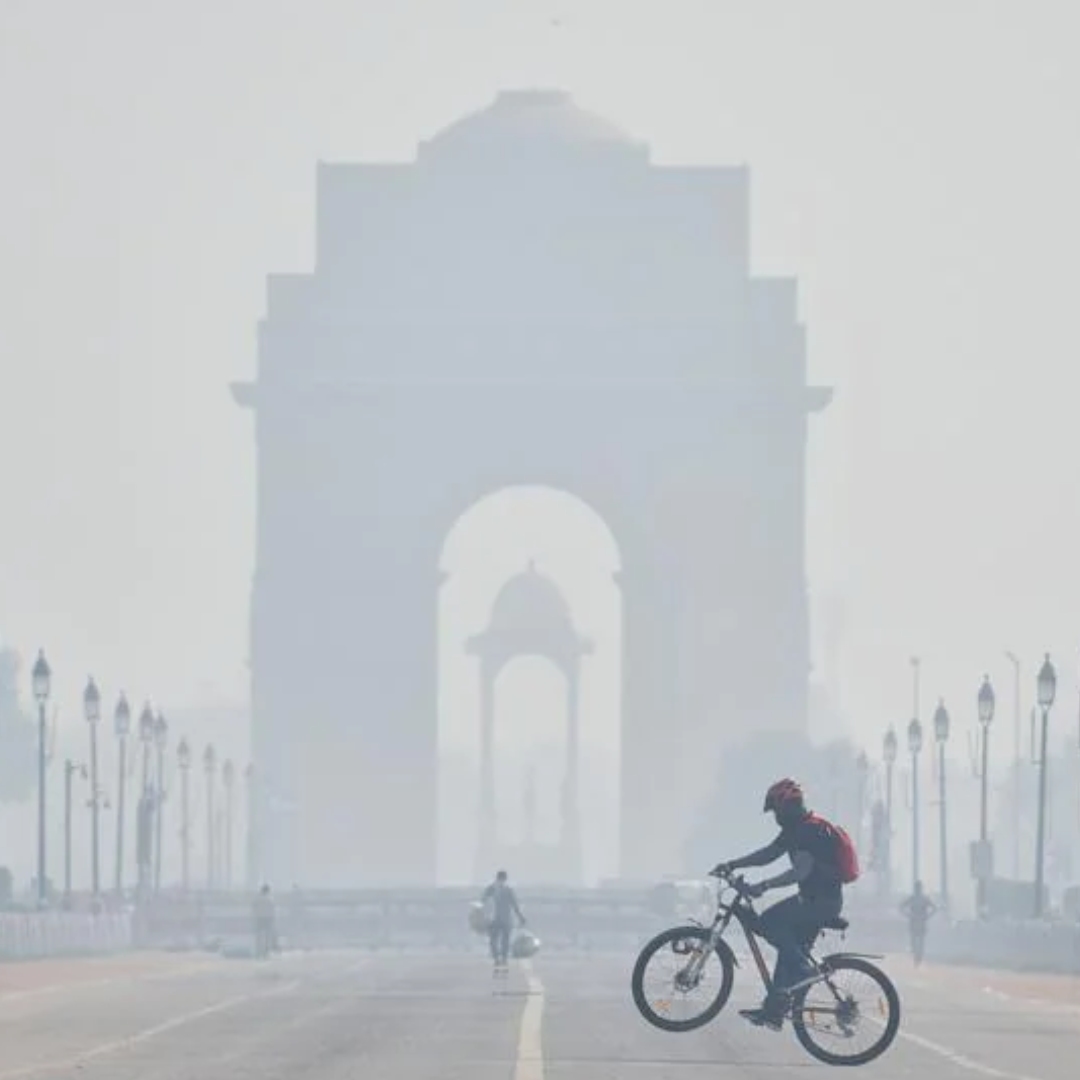
Image Credits: Hindustan Times
75% Of Children Have Breathlessness Problems In Delhi, Finds Study
Writer: Abbas Rizvi
He is a voracious reader who likes to read about the world. Research and Fact Checking are his area of work. He likes to think before speaking.
Delhi, 14 Oct 2021 8:07 AM GMT
Editor : Ankita Singh |
A literature lover who likes delving deeper into a wide range of societal issues and expresses her opinions about the same. Keeps looking for best-read recommendations while enjoying her coffee and tea.
Creatives : Abbas Rizvi
He is a voracious reader who likes to read about the world. Research and Fact Checking are his area of work. He likes to think before speaking.
In a new study conducted by the Energy and Resources Institute (TERI), it was found that climate change leaves 75% of the children feeling suffocated in the nation's capital.
In a new study conducted by the Energy and Resources Institute (TERI), it was found that climate change leaves 75% of the children feeling suffocated in the nation's capital.
The study was conducted on 413 children, out of which 24.2% complained of itchy eyes, 75.4% complained of breathlessness, 20.9% of children complained of coughing in the morning, and 22.3% complained of regular sneezing or runny nose. The age of children who were included in the survey was between 14-17 years of age.
Hazardous Metals In The Air
The study also says that air in Delhi has a high concentration of PM 2.5 that may increase problems for health. In October 2019, the zinc concentration in the city's PM 2.5 (particles less than 2.5 micrometres in diameter) was 379 ng/m3 (nanograms per cubic meter of air). It increased to 615 ng/m3 (nanograms per cubic meter of air). In the same way, the lead content in Delhi's air was 233 ng/m3 (nanograms per cubic meter) in 2019, and now it is increased to 406 ng/m3 (nanograms per cubic meter of air) in the year 2020, with an arsenic content of 3 ng/m3.
Many experts have said that these metals are highly hazardous to health, and continuous exposure to these can create many health problems for human life. The high amount of arsenic and cadmium in the air also put ordinary people at high risk of Kidney problems, cancer, high blood pressure, heart diseases and diabetes, as reported by Hindustan Times.
" If PM 2.5 level - less than 60 ug/m3 - is considered an acceptable norm, but if the concentration of toxic metals is high in the air, then it means your health is a very high risk," said Kanhaiya Lal, TERI Associate Fellow (Environment and Health).
Also Read : 'Historic Day': WHO Recommends Use Of World's First Malaria Vaccine
 All section
All section














